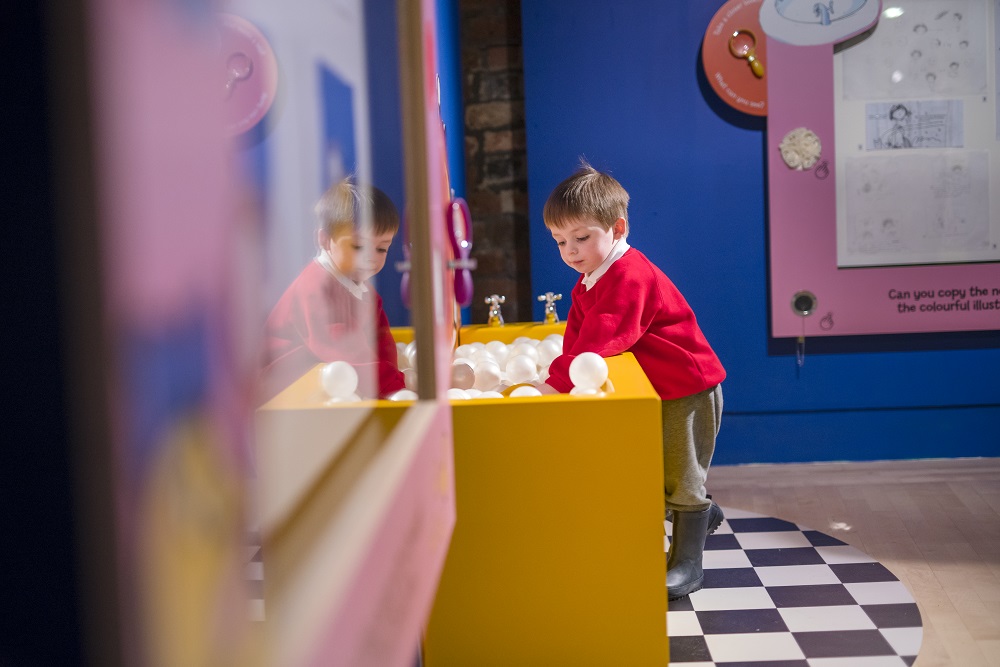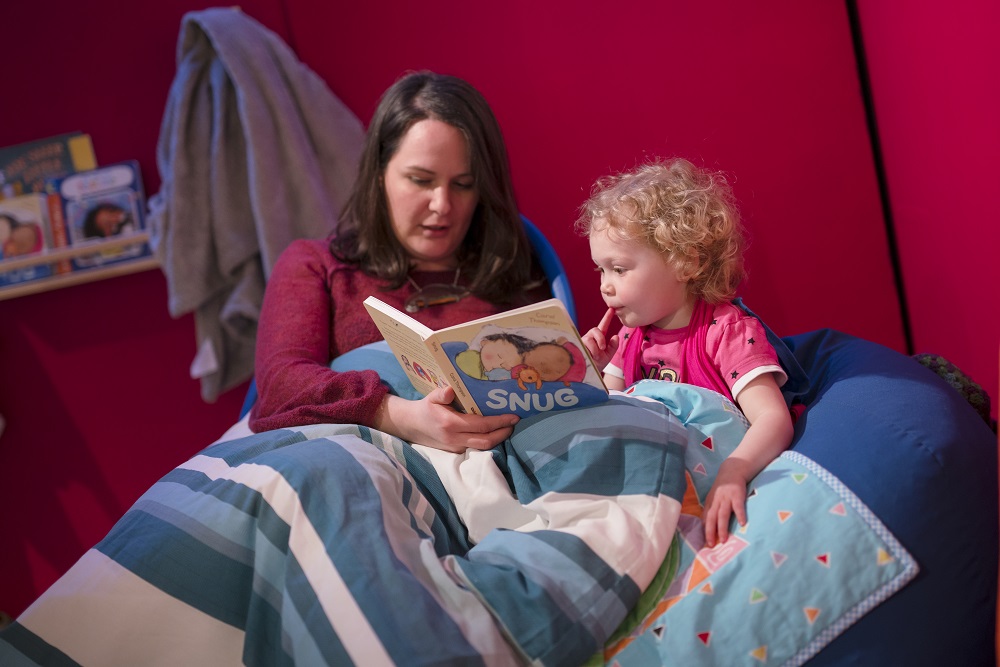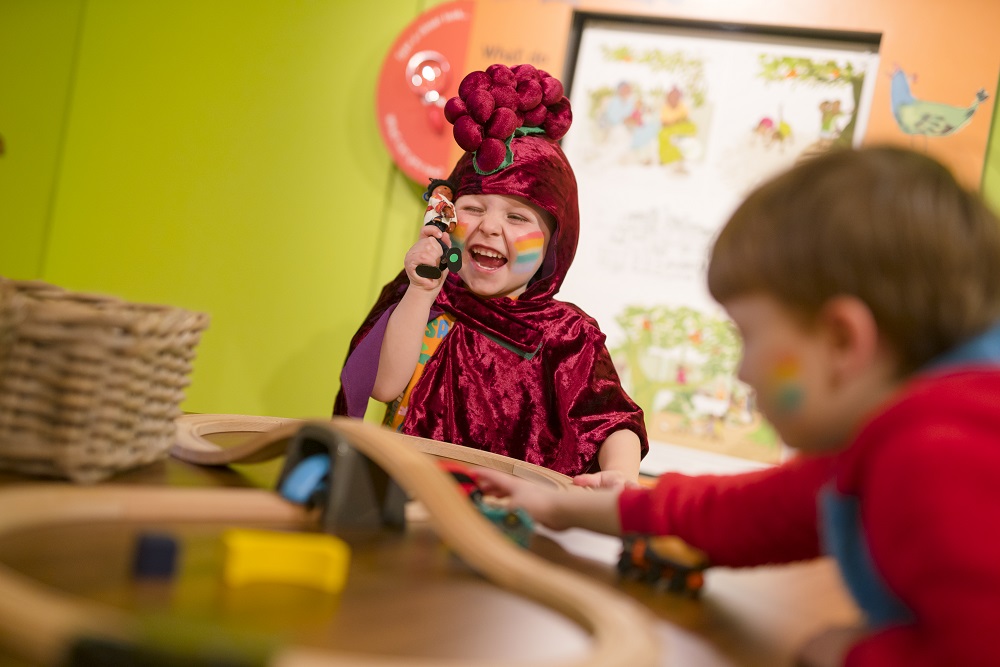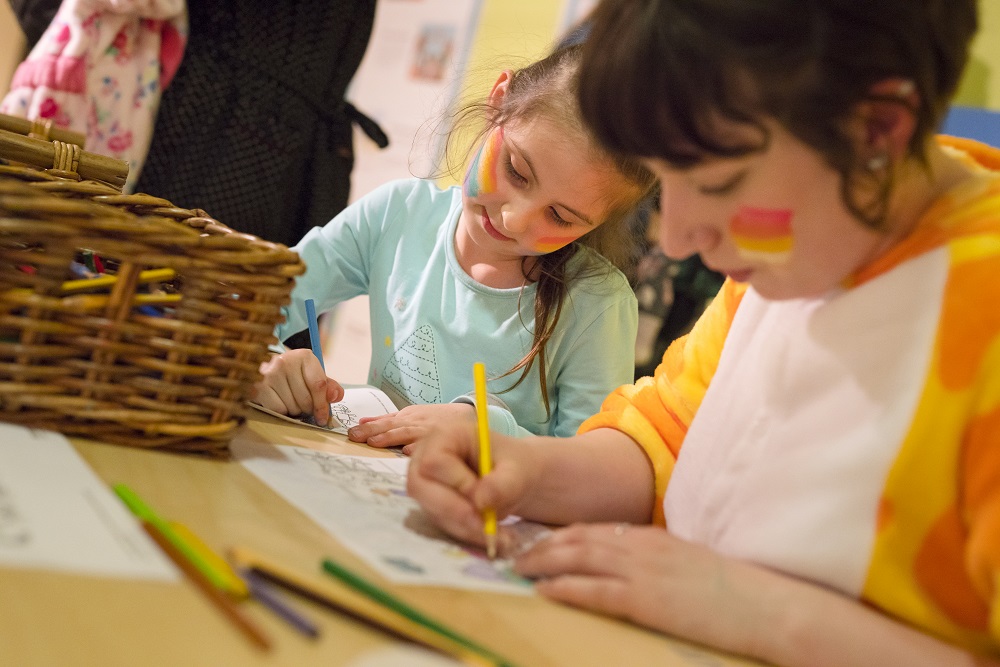In the 2017/18 academic year, Seven Stories: The National Centre for Children’s Books have worked with Newcastle University Business School on a new collaboration. Find out about how a management consultancy project is informing Seven Stories’ membership schemes and benefits in this blog post.
There’s an interesting relationship between charities and business. Charities are organisations established to meet a charitable purpose, for the public benefit – not for profit. They are part of what’s sometimes called the ‘third sector’, falling between public services and private enterprise. And of course, charities share similar activities to private companies. They generate income. They employ people. They produce end of year accounts, marketing strategies, business plans…
So, there’s a clear opportunity for the Vital North Partnership to support Seven Stories’ work through collaborations with Newcastle University Business School, with its expertise in accounting and finance, business management, marketing and economics. After initial meetings with colleagues there, we identified the third-year module, BUS3053, where third year students undertake a management consultancy project in place of a dissertation, as a great starting point.

The purpose of the Management Consultancy Project module is to give students experience of working with a real employer on a live issue. Module leader, Sarah Carnegie, explains: “The module is one of the final year capstone modules that students at the Business School can take. It provides an opportunity for our students to apply the skills and knowledge gained in their studies and is an example of work integrated learning. Research shows this style of learning can assist students in developing their career management skills, as well as being a challenging academic project. The management consultancy projects are key to the Business School developing links with businesses and promotes employer engagement.”
Students: Louisa Abercrombie, Thomas Crozier, William Inkster, Matthew Parnell, Emma Roberts, and Amos Syn were assigned to the project. In consultation with Seven Stories, they defined a project brief to “recommend ways for the client to improve and simplify the overall performance of memberships, in order to maximise revenue in turn improving long-term sustainability.”
After initial meetings with Seven Stories’ Chief Operating Officer, Jon Riley, and Seven Stories’ Development and Relationships team in October 2017, the students began their research. They identified Seven Stories’ market position and competitors, examined Seven Stories’ existing data and secondary data and conducted and analysed primary research including surveys and focus groups.

They then used this research to inform their conclusions and a series of recommendations for enhancing Seven Stories’ membership schemes, which they presented to Seven Stories with their final consultancy portfolio and written report in March 2018.
For Emma and the student team, “Working with Seven Stories gave us all a valuable insight into challenges businesses face and allowed us to actively seek solutions to help a real situation. Every one of us developed skills, contributed to the research and gained real work experience. When we faced challenges, we worked together as a team to overcome these. We all thoroughly enjoyed forming innovative and creative solutions together with Seven Stories to enhance their fantastic business.”
Sarah Carnegie added that: “Academic staff agree the initial scope of the work that the student group may engage with, but it is down to the group to actually deliver. Each student group has weekly contact, during term time, with a member of academic staff as it is important to build momentum and it’s amazing to see how engrossed the students become in their projects and how hard they work for their clients.”

And Seven Stories were impressed with the professional way that the students approached the project. Jon said: “From the very first meeting with Emma, Tom, Will, Louisa, Matt, and Amos, it was obvious that they were really engaged with the consultancy project. They defined their own brief and worked with a number of colleagues in our team to gain a thorough understanding of our work. The conclusions the students came up with were interesting and innovative – we’re actively considering implementing some of their recommendations over the next year.”
What’s next? We’re discussing a second management consultancy opportunity with Seven Stories for the 2018/19 BUS3053 cohort. We’re also talking about collaborating as part of Newcastle University Business School’s MBA internship pilot later in 2018. Watch this space!


